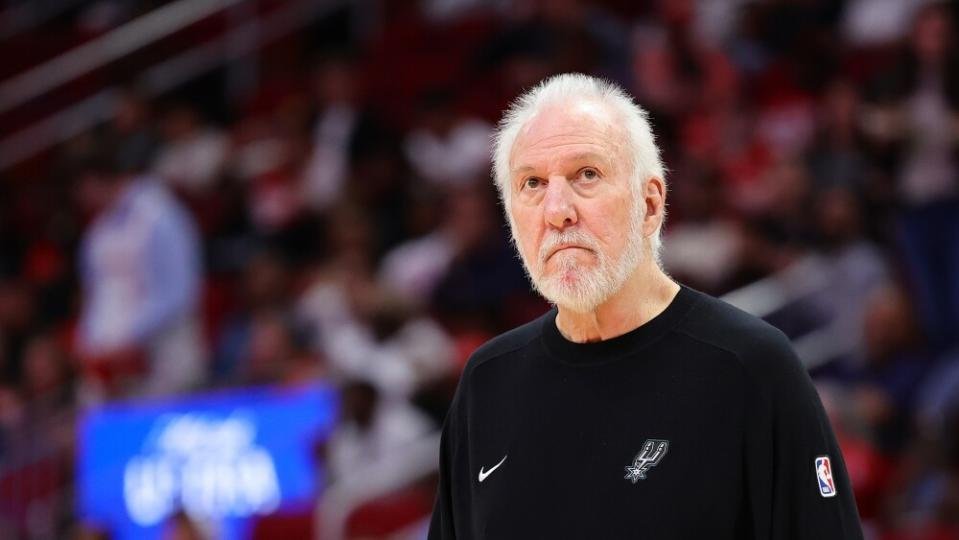San Antonio’s Gregg Popovich, the oldest coach in the NBA, suffered a mild stroke on Nov. 2 and is recovering, although there is no timeline on his return. The Spurs announced the diagnosis on Wednesday.
The Spurs organization has closed ranks around Popovich since he went out on Nov. 2 with what the team called at the time a “health issue,” though the way they reacted suggested it wasn’t a simple cold or flu that might have will cost him a handful. of games.
A stroke is when blood flow to the brain is blocked and cut off (or, more rarely, a blood vessel inside the brain bursts), and there are widely varying levels of severity and long-term impact based on where the clot occurs and how. quickly the patient receives treatment. The Spurs called it a “mild” stroke, which is the actual medical classification for a level of stroke, one with symptoms that many people associate with the condition: weakness and numbness on one side of the face (or body, such as the arm), which leads to a sag effect, it is coupled with difficulty speaking or understanding what is being communicated to them. However, as the name “mild” suggests, the effects are not as severe as they could be.
If, as it appears to have happened in this case, Popovich received prompt treatment – the stroke occurred while he was at the arena, according to the Spurs – and was treated with “tissue plasminogen activator (tPA)” medication, it would help limit it. the long-term effects of the stoke breaking up the blood clots (this is why immediate treatment is critical for strokes, there is a time limit on how long before these drugs are no longer effective).
The Spurs still leave Popovich’s return open this season, though whether he wants to return to coaching long-term or decides to leave is up to him. San Antonio management has long said Popovich will decide when he wants to leave; this health scare will have Popo pondering that very question.
Popovich is an NBA coaching legend – a five-time NBA champion, coached Team USA to an Olympic gold medal in Tokyo, and won more regular season games than any coach in NBA history. His coaching tree – Mike Budenholzer, Ime Idoka, Steve Kerr, Mike Brown and many more – is the foundation of franchises around the league.


